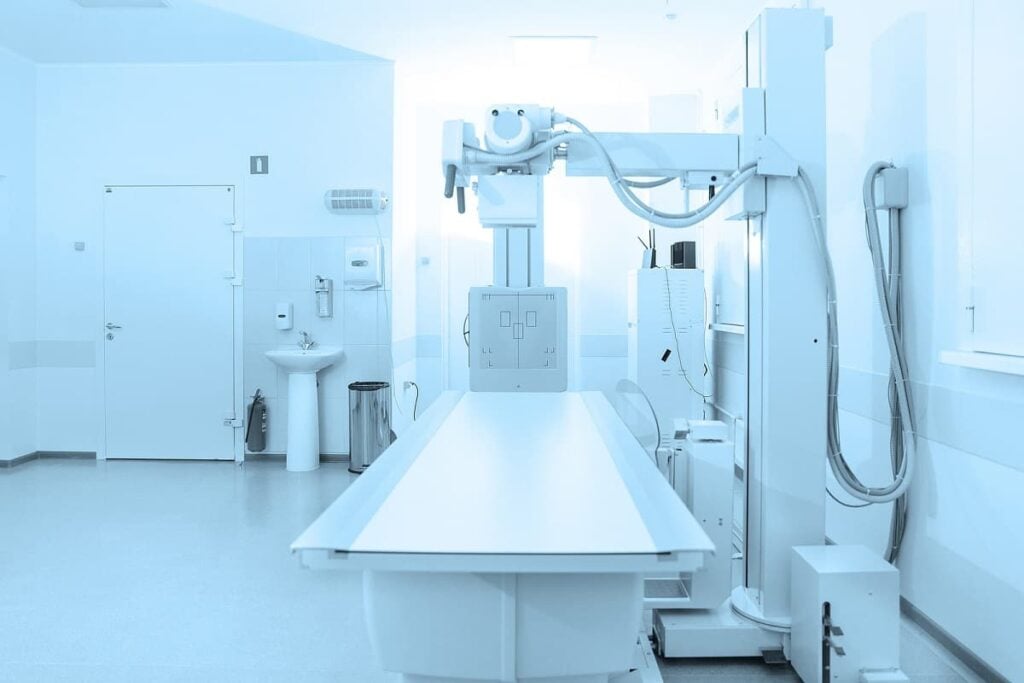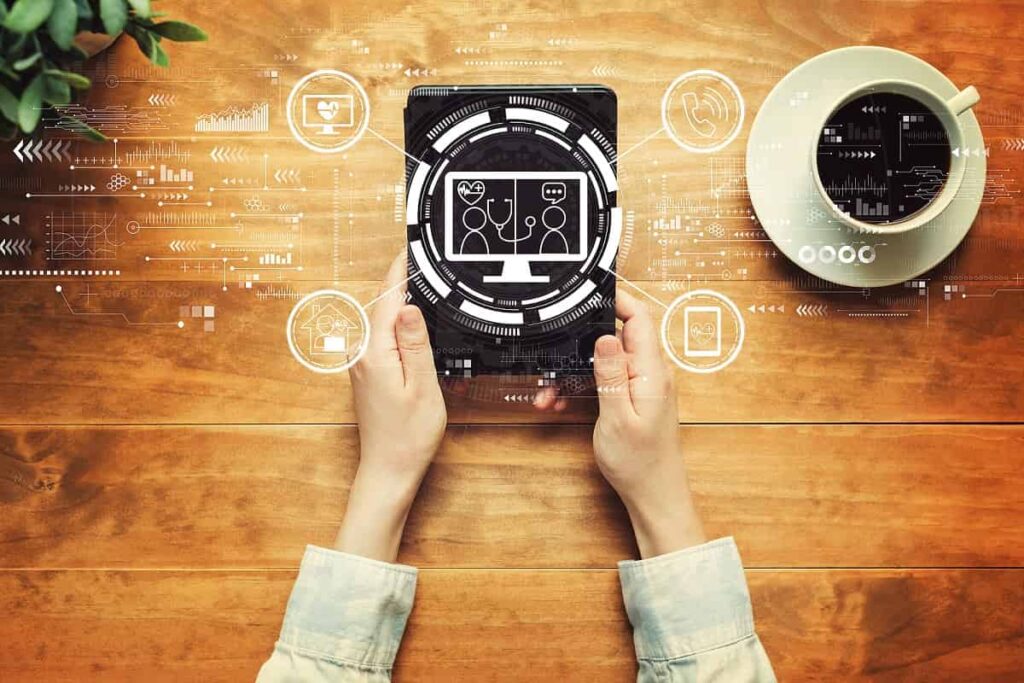Eko Devices: AI-Enhanced Digital Stethoscopes
Table of contents

So much in medical science is yet unknown. For example, if you think your brain is what makes you “you,” think again. A documentary called Transplanting Memories proposes some controversial theories about how it’s not just the brain paying attention. While the prevalence is small at 5%, there are a number of interesting cases where the heart transplant recipient starts to adopt the preferences, behaviors, and lifestyles of the donor. Experts are skeptical, but the evidence is quite astounding. If anything, you’ll come away from the debate with a better understanding of how important the heart is to the proper functioning of the human body. Today, we’re going to talk about a company that’s reinventing the primary tool used to examine your “second brain.”
About Eko Devices
Founded in 2013, Bay Area startup Eko Devices has taken in $95.5 million in disclosed funding to develop medical devices and software that help healthcare professionals better diagnose, treat, and monitor heart diseases. The lion’s share of that funding came in the form of a $65 million Series C that closed in late 2020. The company has already developed several sensing devices, one in cooperation with dividend champion 3M (MMM), and its own subscription e-health platform which includes a telehealth plan.

Update 03/23/2022: Eko has raised $30 million in extended Series C funding to support further commercialization efforts and develop new products. This brings the company’s total funding to $125.5 million to date.
The central focus of Eko has been to harness the power of a number of relatively novel technologies – smartphones, embedded IoT sensors, cloud-based data storage and processing, and AI – to better monitor the health of patients with cardiovascular diseases. In pursuit of this aim, Eko has built a platform of non-invasive cardiovascular monitoring devices, clinical software, and point-of-care decision support algorithms to improve the delivery of care.
Though The Rona and recent round have raised the company’s profile, Eko has experienced steady growth for the last seven years, due in part to the support of several strategic partners: 3M, the National Institutes of Health (NIH), and the Mayo Clinic. The most visible product to emerge from these collaborations is a digital stethoscope.
AI-Enhanced Digital Stethoscopes
Alongside research grants from the NIH, Eko’s partnership with 3M has been quite productive. In 2015, for instance, Eko and 3M jointly launched the Eko Core Digital Stethoscope, the first FDA-cleared digital stethoscope on the market to wirelessly stream heart and lung sound to HIPAA-compliant software. Then, last October, Eko teamed up with 3M again to develop a digital version of its ubiquitous Littmann stethoscope brand

While the doctor is listening to the patient, the sounds can be analyzed by artificial intelligence algorithms that provide insights in much the same way a cardiologist would.
Though Eko has become most recognizable to health professionals and investors alike through their Littman Stethoscopes, the company’s fortunes are not tied to the embedded medical device market. Instead, Eko is representative of a large group of companies looking to take advantage of the expanding capabilities of cloud-based AI analysis tools to improve patient care, and to do this at scale across the US healthcare system. It’s something we talked about in a recent piece on how Telehealth is More Than Just Virtual Doctor Visits.
This was highlighted by Eko co-founder and CEO Connor Landgraf in relation to the recent funding round. In a press statement, he explained that “the explosion in demand for virtual cardiac and pulmonary care has driven Eko’s rapid expansion at thousands of hospitals and healthcare facilities.” At the moment, this is a market dominated by adhesive patches – generally used by health professionals – and a growing number of consumer wearables featuring ECGs and other sensors as built-in features. The Apple Watch has led this shift since late 2018, but the past couple of years have seen similar features come to devices from Samsung, Fitbit, and Withings as well.
Changing Regulatory Environments
Just weeks ago, the FDA issued an action plan for regulating AI in medical devices. It’s a verbose beast, and we don’t recommend that get you get anywhere near this thing. If there’s something of value in there, you’ll need to dig deep to find it while trying to avoid landmines like this one:
Strengthen FDA’s encouragement of the harmonized development of Good Machine Learning Practice (GMLP) through additional FDA participation in collaborative communities and consensus standards development efforts.
Credit. The FDA
That’s actually one of their five big to-dos, and there’s nothing remotely actionable about it. The entire action plan seems full of long-winded paragraphs that don’t really relay anything useful.

Anyone who has done hard time in Corporate America knows that action plans are mildly amusing in the best case scenario and absolutely useless in all other cases. What this action plan serves to do is give the industry some assurance that the FDA has their best interests in mind. In turn, this gives investors the confidence to continue investing in the sector because they believe regulatory risk is decreasing.
As the FDA looks more favorably upon AI healthcare applications, it paves the way for Eko to digitize the process of gathering sounds from patients. Eko stethoscopes allow, for the first time in history, patient sounds to be integrated with electronic health records (EHRs) for more seamless referrals, documentation, and monitoring. The company’s flagship Duo stethoscope captures both heart sounds and electrocardiogram readings, and is connected to an AI program that received an FDA clearance at the beginning of this year to detect the signs of atrial fibrillation and heart murmurs.
The success of Eko’s recent funding round could be partially because of this recent FDA approval, something that’s critical for companies looking to develop healthcare devices in the USA. Until now, it’s been unclear how the FDA viewed AI-enhanced systems and how they would judge them to be safe. Now that the FDA has issued some – verbose as it may be – guidance on the whole thing, everyone can resume full steam ahead as big patient data becomes the focus of entrepreneurs everywhere.
The Patient Data Ecosystem
AI-powered healthcare is now a booming market, with the number of life science studies published around A.I. rising from 596 in 2010 to 12,422 in 2019. Plenty of companies are working on matters of the heart. Silicon Valley startup AliveCor aims to turn smartphones into clinical-grade electrocardiogram (ECG) recorders. Caption Health has developed an AI ultrasound platform for scanning hearts that even a heartless MBA could operate. All of these companies are on the same quest – to collect as much valuable data as possible to make the AI algorithms as smart as possible.
The U.S. alone spent $3.65 trillion on healthcare just last year, much of which gets wasted on archaic and inefficient processes that exist in an industry which can’t innovate because everything is so bureaucratic. Inefficiencies are low hanging fruit for technology startups looking to solve problems, a value proposition that’s appealing in good times and bad. The best way to identify inefficiencies is by analyzing lots of big data using predictive analytics. The most valuable data set that Eko will soon dominate is that retrieved when the patient first encounters the healthcare professional. That’s probably the most valuable because it’s at this point in time that a correct decision about the future course of therapy can save lives. Eko just might be the gatekeeper of that data if all goes well for them.
Conclusion
“The massive market need for telehealth is not going away,” said Rob Toews, principal at Highland Capital Partners. “Regulatory and reimbursement changes have been underway to support this growth. Eko is uniquely positioned in this space because their technology addresses crucial clinical needs that other companies cannot satisfy, and Eko’s platform is very easy to deploy and scale.”
Eko company’s ultimate goal is to make its AI analyses a standard inclusion to every routine physical exam performed in a doctor’s office – while at the same time helping people avoid clinic visits altogether when possible. And if it can do that, then recent investor confidence is likely to be well rewarded.
Sign up to our newsletter to get more of our great research delivered straight to your inbox!
Nanalyze Weekly includes useful insights written by our team of underpaid MBAs, research on new disruptive technology stocks flying under the radar, and summaries of our recent research. Always 100% free.















